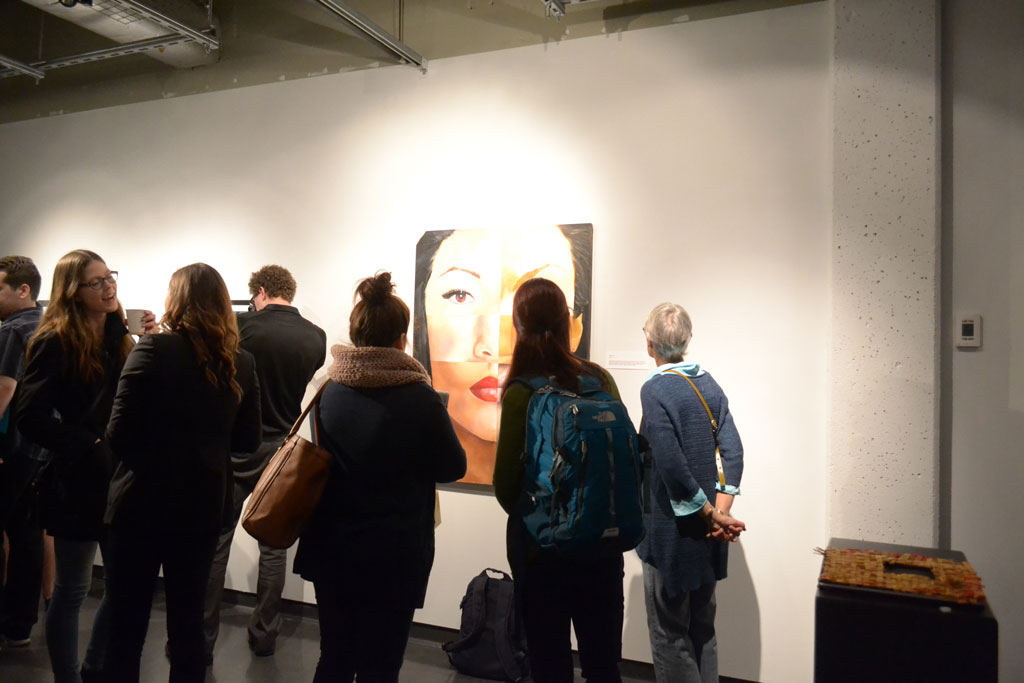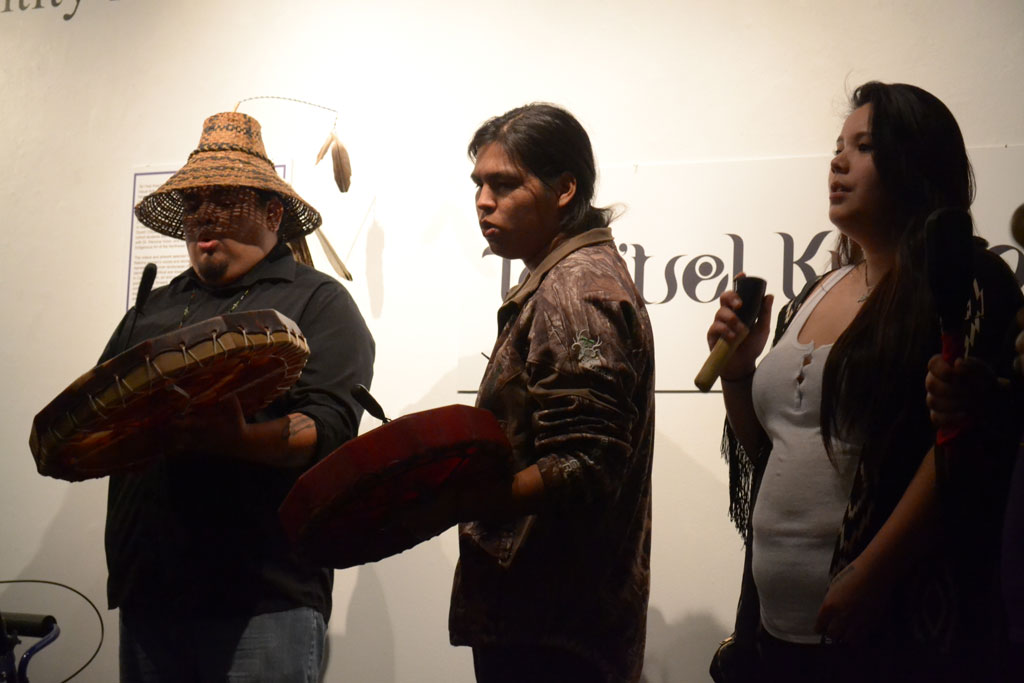By Martin Castro (The Cascade) – Email
Print Edition: April 1, 2015
On Friday, March 27, the opening reception for the Tel i’tsel Kwe’lo (I am here) exhibit was held in the S’eliymetaxwtexw gallery in B136, where visual art by students enrolled in the Lens of Empowerment program was showcased. The exhibit focuses on media that explores multiculturalism, identity, and women’s citizenship. Visual art such as mixed media pieces and paintings, also the work of UFV students, was displayed during the reception, followed by a screening of student-made films.
The Lens of Empowerment program consists of five courses, which work to create further awareness of our presence on Stó:l? territory. These include “An Introduction to Storytelling,” taught by Michelle LaFlamme, and “Indigenous Art: Stories and Protocols,” taught by Wenona Victor. The program concludes with working on films focused on women’s identity within community, overseen by video production instructor Stephanie Gould.
During the opening reception at the gallery, several speakers addressed the meaning and importance of the S’eliymetaxwtexw gallery, which fosters creative output from students at UFV and encourages multiculturalism. Students spoke on the process of creating their art over the past semesters, saying that the work was gruelling, but worth it because they wanted to share the journey they had in their classroom.
UFV president Mark Evered also praised the Lens of Empowerment program, adding that he was thankful to be the president of a university in which students and faculty “care this much about the people that come from this land.”
“I don’t think we’ve always done well,” said Evered, speaking about UFV’s relationship with aboriginal students and the aboriginal community at large, “but I’m so pleased that [UFV] is committed … to working with First Nations people. I’m always pleased when I hear someone acknowledge that we are on the territory of the Stó:l? people.”
Evered also spoke to the importance of the visual arts program and its importance to community at UFV.
“You see firsthand the creativity of this institution … Art is a way for students to share their views of the world.”
Attendees were invited to B101 to view the short documentary films that students had created. Eight films were shown, by students Lauren N. Krenz, Joanne Combes, Mario deSantos, Sarah Gabor-Martinez, Jessica Janik, Kelly Oberholtzer, Ramona Valenzuela, and Theresa A. Warbus.
Each film focused on a different aspect of community in the Fraser Valley. Lauren Krenz’s film focused on Joanne Combes, a fellow classmate, and her reflection on the misuse of an aboriginal piece of art, as well as self-identity. Other films, such as Gabor-Martinez’s, focused on First Nations women’s self-governance in Canada, and the impact of European influence; among other things, Western traditional is patrilineal, whereas local First Nations customs are matrilineal, passing name and traditions down through the mother’s side of the family.
Pride in one’s self-identity and community were the resounding themes throughout the night.
There will be a second film screening on Thursday, April 2 at the CEP campus in Chilliwack.


